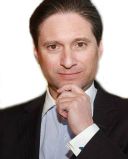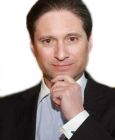Bias
Experts in Bias Still Possess Infinite Biases
Hopefully experts in bias are more aware of the existence of their biases.
Posted May 22, 2022 Reviewed by Jessica Schrader
Key points
- All human beings, with no exceptions, possess infinite numbers of biases.
- There tends to be a misplaced focus on people's actual and perceived biases, rather than on their character and integrity to be impartial.
- It is unrealistic, unreasonable, and harmful to expect or imply that people can eliminate their biases.
- Left unchecked, biases lead to impaired thinking.
I was recently invited to lead a discussion on bias at a monthly meeting of CEOs. Almost immediately after I was introduced to the group, one of the CEOs commented that he did not believe that those of us who have or purport to have expertise in the topic of bias have fewer biases than anyone else.
I told him that I was very glad that he made that comment because it is a belief that I am certain a great many people hold.
I responded that I do not believe that I have fewer biases than anyone else and have never said otherwise. I explained that when we are born, we have a clean slate when it comes to life experiences because we have not yet had any. The longer we live and the more to which we are exposed, the more life experiences we have had.
When I refer to biases, I am typically referring to that which forms and shapes people’s opinions of that which are anything other than objective facts, which are verifiable and unquestionable. The more life experiences people have, the more biases they tend to possess, in that regard. Our life experiences have to do with everything we experience in our lifetime, including people we befriend, schools we attend, courses we take, books we read, our sources of news, etc. As such, it would make no sense for me to believe that I possess fewer biases than anyone else.
I am almost certain that I believe that I have far more biases than most people believe they possess, just by virtue of my understanding of the issue. That is not to say that I have more biases than other people my age; rather, that I tend to be more aware that I possess infinite numbers of conscious (explicit) and unconscious (implicit) biases and have no problem admitting it. Based upon everything I know and understand about biases, human beings will never be able to eliminate biases, which is why I get so frustrated when people and organizations refer to the elimination of bias. The State Bar of California, for example, requires California licensed attorneys to complete courses in Elimination of Bias every reporting period to maintain their license. People can certainly work to reduce their biases. People might possibly even be able to eliminate certain biases they hold. However, considering how the human brain functions and the infinite numbers of biases people possess, the vast majority of which are unconscious, it is unrealistic, unreasonable, and harmful to expect or imply that people can eliminate their biases.
As far as my understanding goes, it would behoove people to focus on what they can do to reduce and otherwise keep their biases in check, rather than engaging in a fool’s errand of attempting to eliminate biases and causing people to believe that is even humanly possible.
Left unchecked, biases cause people to constrict and distort the information they receive, try to understand, and consider in a fair manner. The more constricted and distorted the information received, understood, and considered in a fair manner, the more impaired people’s thinking becomes.
Most people may not be familiar with Susie Marshall Sharp. She was the first female chief justice of the North Carolina Supreme Court. In 1956, as a superior court judge, she was responsible for desegregating the city-owned Bonnie Brae Golf Club. Knowing that, would it surprise you to learn that Sharp held segregationist views, expressed racist views about African Americans throughout her life, and was displeased with her ruling, even as she issued it?
It bears mentioning that Justice Sharp possessed an actual bias against African Americans and in favor of segregation. Yet, her character and integrity were such that she kept those biases in check because the Canons of Judicial Ethics require jurists to perform their duties fairly and impartially. I admittedly have great difficulty stating my belief that a devout racist and segregationist possessed strong character and integrity; however, I do not know how else to describe it, at least when it came to her role as a judge.
As Justice Sharp demonstrated, actual explicit biases a person holds can be kept in check, if the individual has the motivation to do so and that involves an external or internal motivation to be fair.
After sharing that story with the group, I commented that if anyone who claims to or is believed to possess an expertise in bias believes that they somehow have fewer biases than anyone else, I have difficulty believing that they are true experts on the topic, regardless of their self-perception or the fact that they may have become reputation or peer popularity based experts, as described in Noise: A Flaw in Human Judgment by Daniel Kahneman, Olivier Sibony, and Cass Sunstein.
The issue of bias has been a central theme throughout my published work, since my first article was published in the September/October 2008 edition of the newsletter for my local psychological association. Based upon comments and reactions I have received from many people over the years, this apparently widely held assumption has become clear to me. In fact, I have spoken with psychologist friends about this false assumption and its negative impact on me and the information I convey.
I do not believe and have never said that I am super-human and thereby possess fewer biases than anyone else or that I am able to keep all of my biases in check all the time. That said, considering my understanding of the topic, including that left unchecked, biases lead to impaired thinking because they cause us to constrict and distort the information we receive, try to understand, and consider in a fair manner, and since I try not to engage in impaired thinking, to the extent possible, I would like to think that I keep my biases in check more than those who do not possess a similar understanding.




